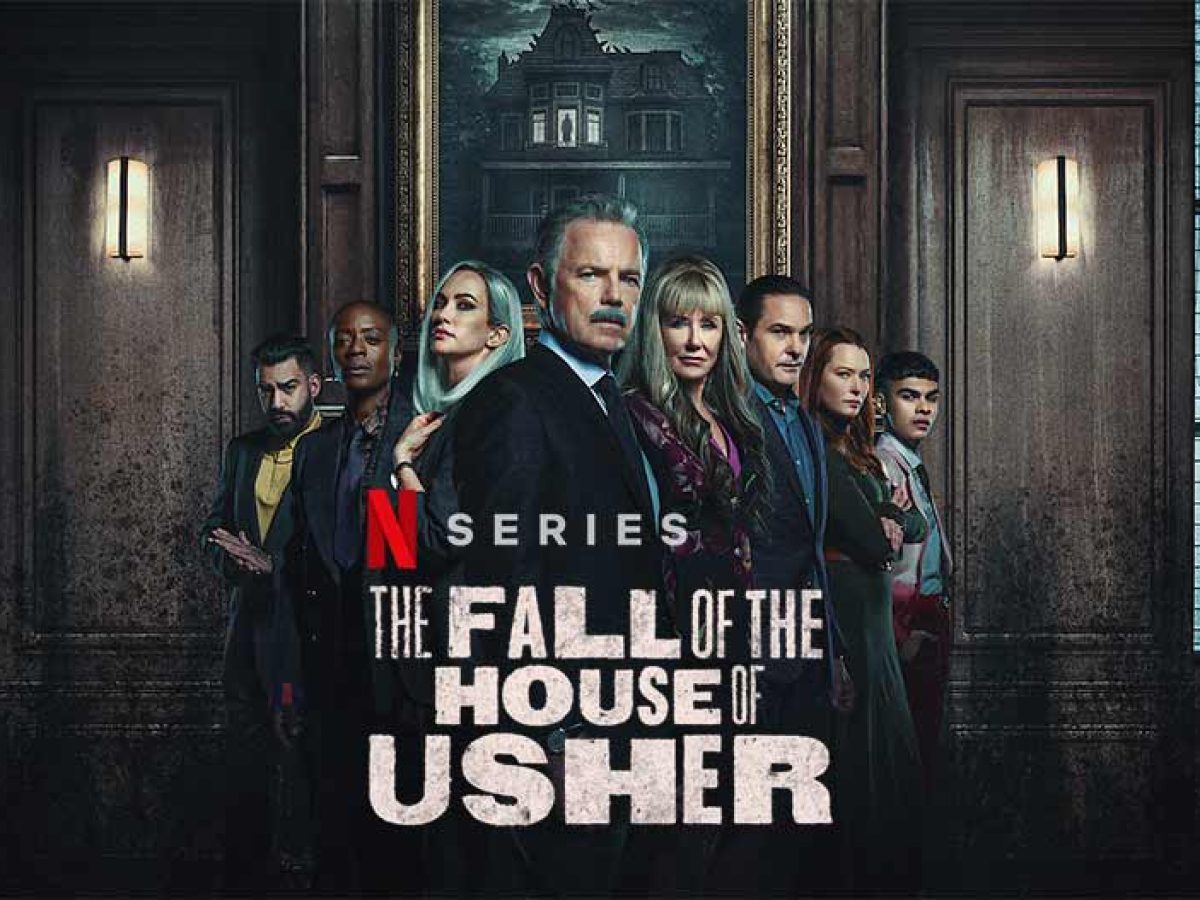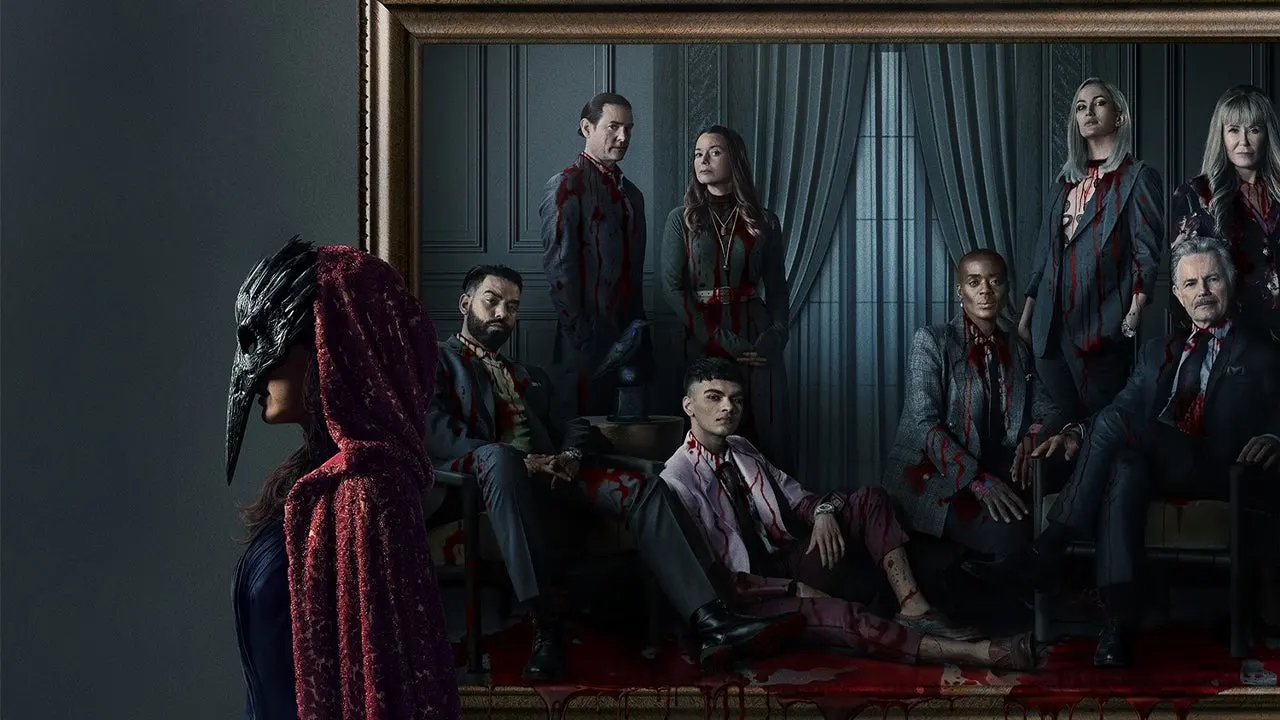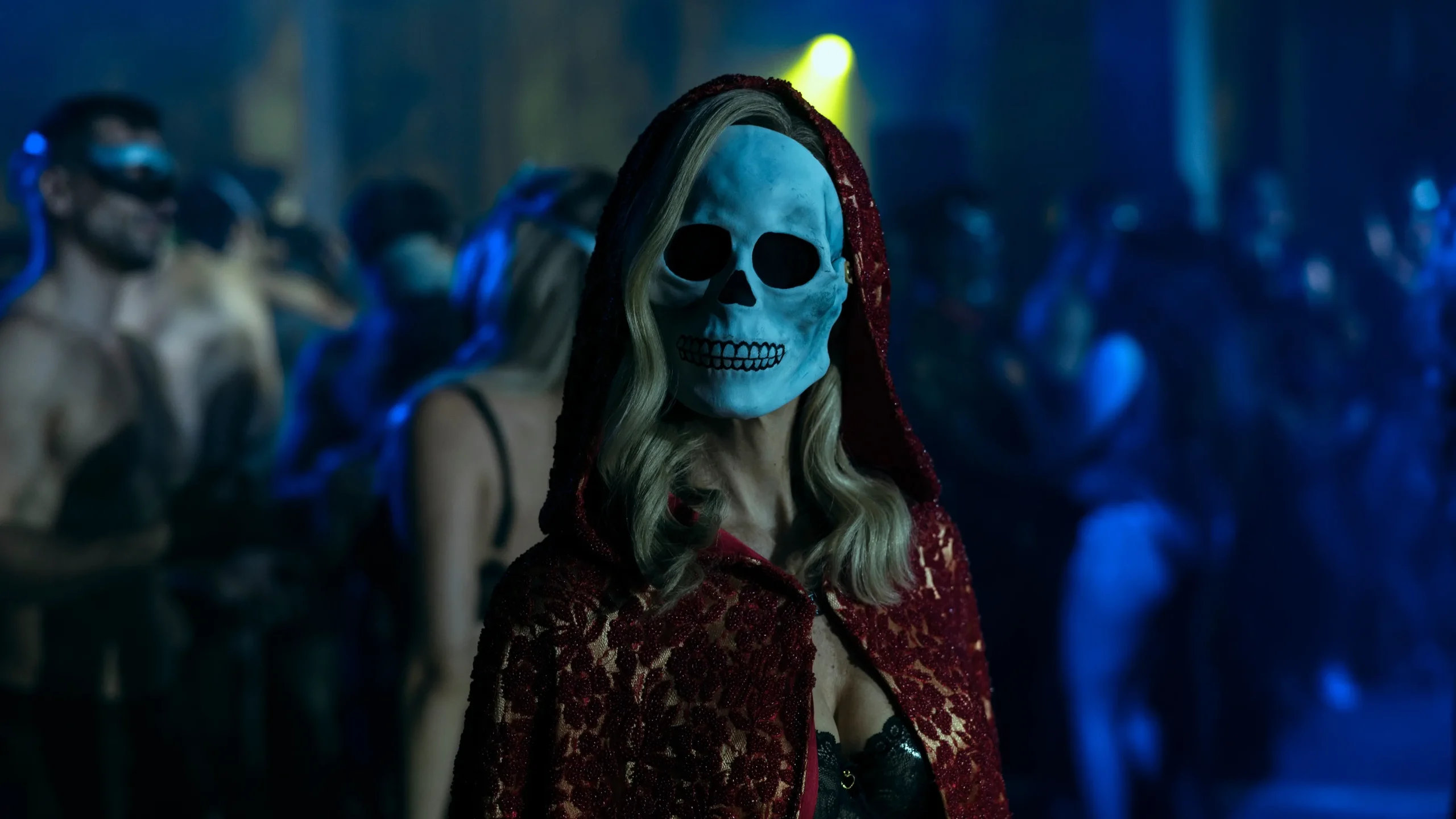The Fall of the House of Usher (2023)

![]()
![]() The Fall of the House of Usher (2023)
The Fall of the House of Usher (2023)
The Fall of the House of Usher (2023) is a dark and gripping horror-drama miniseries created by Mike Flanagan, inspired by the works of Edgar Allan Poe. This haunting tale weaves together themes of power, legacy, and inevitable doom, set against a chilling backdrop of supernatural terror. With its atmospheric storytelling and richly complex characters, the series delivers a modern reimagining of Poe’s gothic classic, blending corporate greed with familial tragedy.
The series follows the powerful yet morally corrupt Usher family, led by the ruthless Roderick Usher (Bruce Greenwood), the CEO of a vast pharmaceutical empire. Alongside his sister, Madeline Usher (Mary McDonnell), Roderick has built a dynasty on the back of questionable business practices, including the development of addictive, life-destroying drugs. However, the family’s fortunes take a dark turn when Roderick’s children—each flawed and complicit in their own ways—begin to die under mysterious and horrifying circumstances.
Alongside his sister, Madeline Usher (Mary McDonnell), Roderick has built a dynasty on the back of questionable business practices, including the development of addictive, life-destroying drugs. However, the family’s fortunes take a dark turn when Roderick’s children—each flawed and complicit in their own ways—begin to die under mysterious and horrifying circumstances.
 Alongside his sister, Madeline Usher (Mary McDonnell), Roderick has built a dynasty on the back of questionable business practices, including the development of addictive, life-destroying drugs. However, the family’s fortunes take a dark turn when Roderick’s children—each flawed and complicit in their own ways—begin to die under mysterious and horrifying circumstances.
Alongside his sister, Madeline Usher (Mary McDonnell), Roderick has built a dynasty on the back of questionable business practices, including the development of addictive, life-destroying drugs. However, the family’s fortunes take a dark turn when Roderick’s children—each flawed and complicit in their own ways—begin to die under mysterious and horrifying circumstances.As the Ushers confront their personal demons, it becomes clear that they are haunted by more than just guilt and ambition. A supernatural force, personified by the enigmatic and malevolent Verna (Carla Gugino), emerges as the harbinger of their downfall. She embodies the consequences of their actions, appearing at pivotal moments to seal the fates of each family member. With every death, the Ushers are forced to reckon with their past sins and the crushing inevitability of their legacy’s collapse.

The narrative unfolds through a series of flashbacks, anchored by Roderick’s confessions to investigator C. Auguste Dupin (Carl Lumbly), revealing the chilling truth behind the family’s rise and fall. As the Usher dynasty crumbles, the series crescendos toward a devastating and poetic finale, underscoring the inescapable nature of fate and retribution.
The Fall of the House of Usher explores themes of greed, corruption, and the weight of generational sin. At its core, it’s a meditation on the consequences of unchecked ambition and the inevitability of death. The series delves into the moral decay of those who prioritize wealth and power over humanity, showing how their choices reverberate across time and through their descendants.

Visually, the series combines gothic horror with modern aesthetics. The Usher family’s opulent yet oppressive world is brought to life through moody lighting, intricate set designs, and a pervasive sense of dread. The use of Poe’s iconic imagery—ravens, crypts, and stormy nights—further immerses viewers in the story’s eerie, poetic atmosphere.
Each episode is laced with references to Poe’s works, adding layers of literary richness for fans while maintaining a compelling narrative for newcomers. The pacing balances slow-burning suspense with shocking, visceral horror, keeping audiences on edge as they witness the Ushers’ unraveling.

Ultimately, The Fall of the House of Usher is a harrowing tale of hubris, punishment, and the inescapable grasp of mortality. It’s a masterful blend of horror and tragedy, offering a chilling reflection on the human cost of ambition and the haunting power of guilt. With its sharp writing, stellar performances, and thematic depth, the series solidifies Mike Flanagan’s reputation as a modern master of horror storytelling.











